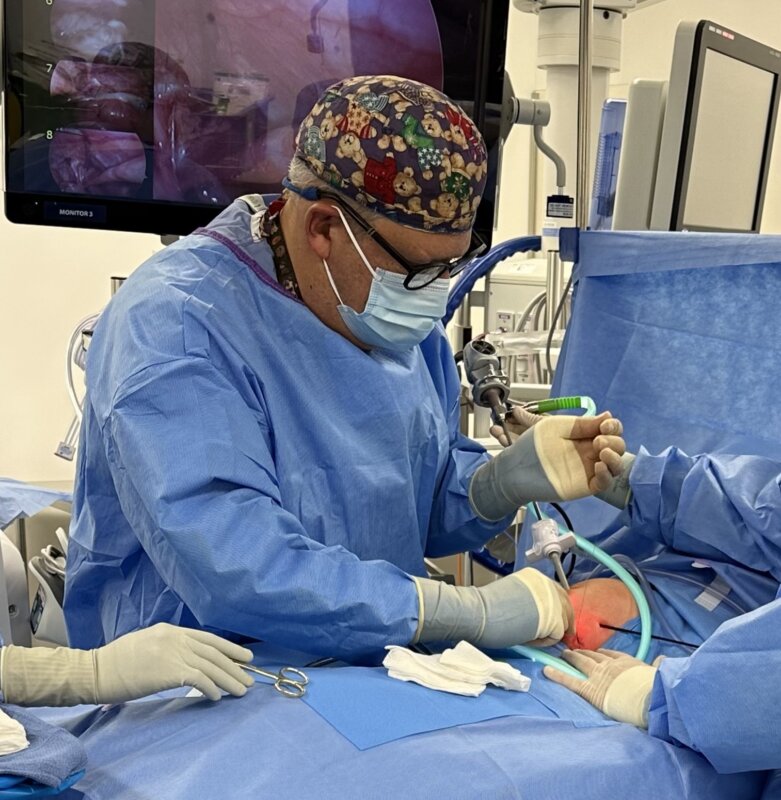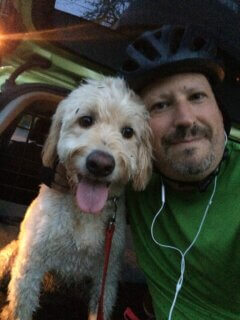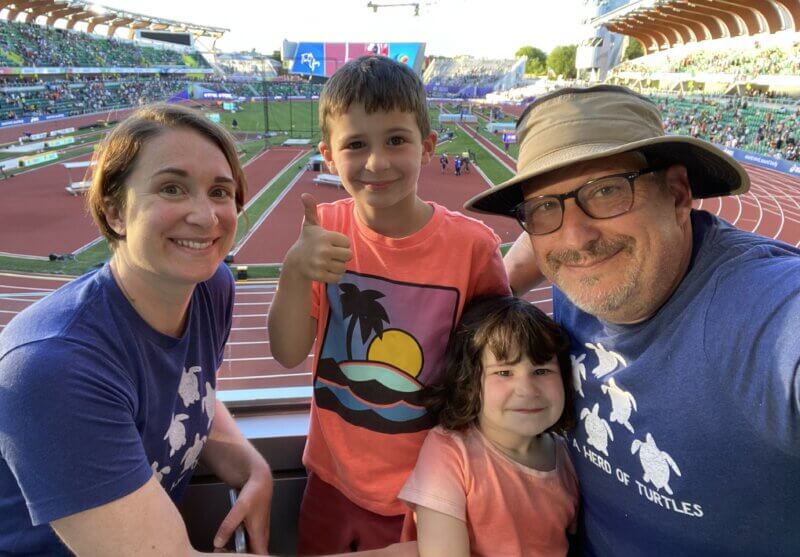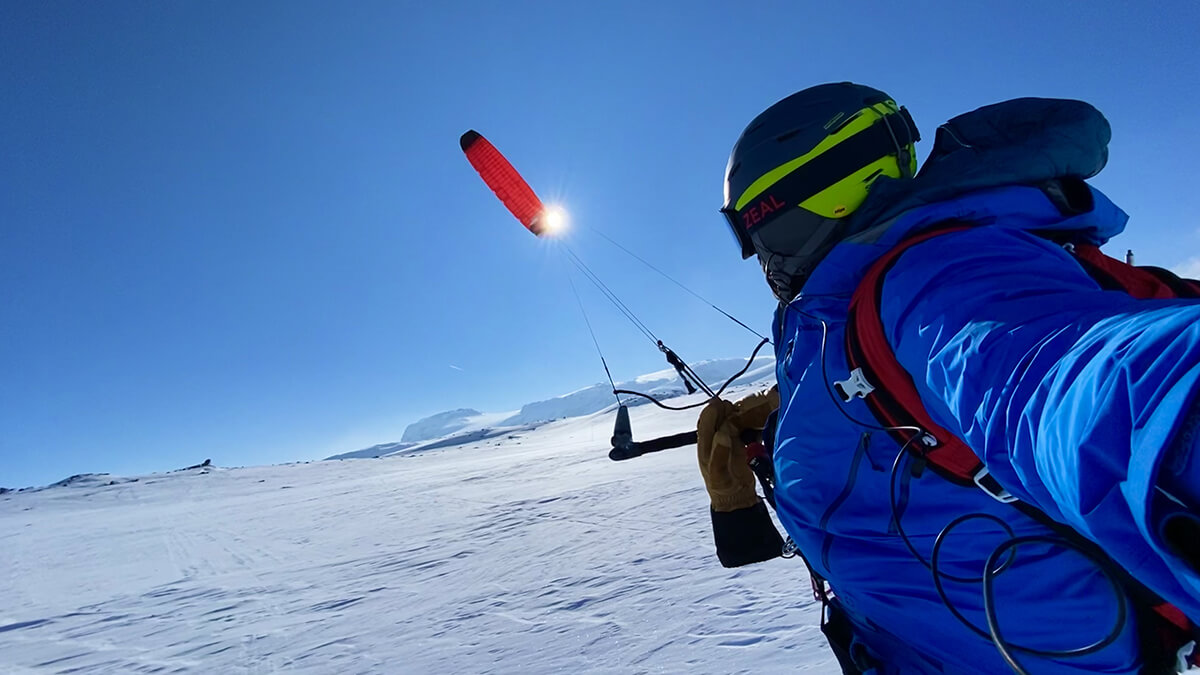On the day he graduated from Colorado Academy, Garret Zallen ’86 knew what he wanted to do with this life.
“I would have told you that I was going to become a high school science teacher,” he says. “And one of my thoughts was that I would return to CA to teach.”
It was not the first time—and it would not be the last time—that a CA student’s future plans were influenced by outstanding CA teachers.
“I looked up to my CA science teachers as mentors and role models,” Zallen recalls. “Doc Hogan’s advanced AP Physics class is perhaps the best class I have ever taken. He was an amazing, exciting teacher, and you could tell he loved to watch students’ minds light up with the things he taught.”
After CA, Zallen headed to Washington University in St. Louis, where he majored in psychology and minored in political science. In his spare time, he started working as an Emergency Medical Technician at the university, and he learned something new about himself.
“I was good at it,” he says. “I could stay calm in hectic, stressful times, even when I was seeing sick and injured people and figuring out how to take care of them.”
That’s how Zallen’s plan to become a high school teacher was replaced by a new plan to study pre-med. Fast forward several decades, and his résumé is still growing. Garret Zallen, MD, is a pediatric surgeon, a nonprofit founder, a medical insurance crusader, a gun violence prevention advocate, an international kiteboarder, and let’s not forget, a bakery owner and professional bread baker. His very full life reflects lessons he first learned at CA.
“To me, there was a renaissance mindset there,” Zallen says. “CA was the first place where I saw the concept of lifelong learning—not because someone said you had to learn something. You learned because they made it fun to learn.”
Why pediatric surgery?

Zallen returned to Colorado for medical school at the University of Colorado Medical School. He then embarked on a 10-year period of residency, the first seven years in general surgery at multiple Denver-area hospitals, including Denver Health Medical Center. It was the era when the hospital was known as Denver General and was made famous by the book, The Knife and Gun Club: Scenes from an Emergency Room.
“I took care of the knife and gun club,” Zallen says. “I know that ER well. There was a lot of penetrating trauma. The army used to send their surgeons there for training.”
After a three-year fellowship in pediatric surgery in Buffalo, N.Y., Zallen took a position as a pediatric surgeon at Doernbecher Children’s Hospital in Portland, Ore. In a choice between practicing surgery on adults and on children, he found that he was more interested in the surgical problems of children.
“They are all things that happened to these children,” he says. “They are not something they brought upon themselves. A lot of these kids have significant problems, but they still have enthusiasm for life. They just want to get better.”
Zallen calls pediatric surgery “the last bastion of general surgery.” He likes the variety of surgeries he does, but he also has developed a specialty in pediatric chest wall abnormalities, treating pectus carinatum (also called pigeon chest because the ribs and the sternum grow outward and make the chest jut out) and pectus excavatum (the sternum is sunken in the chest.)
Zallen’s experience and expertise with this specialty care led him to Shriners Children’s Portland, where he directs the chest wall abnormality program. The care provided at Shriners was free for families—but it was also the only option for most people because insurance companies would not cover chest wall reconstruction, arguing that it was “cosmetic” surgery, even though severe cases of pectus excavatum can eventually interfere with the function of the heart and lungs.
“To call it cosmetic is a really poor description,” Zallen says. “Cosmetic means taking something normal and changing its appearance. What I do is take something abnormal and do a reconstruction to normal.” Armed with data from his work, Zallen took on the Oregon Health Policy Board, arguing that previous assumptions about the nature of chest wall reconstruction were wrong. In an unusual move, the board reversed itself. Now, Oregon children in need of chest wall reconstructions do not have to postpone care because they cannot afford to pay out of pocket.
Talking to children and parents
Ten years ago, in an effort to increase access to healthcare for children in Southern and Eastern Oregon and Northern California, PeaceHealth recruited Zallen to start a new pediatric practice in Eugene, Ore. When he started, there was a dearth of pediatric healthcare in the area.

“I joked that there were more specialty care services for my dog than for kids,” he says. “There were more veterinary sub-specialists than pediatric ones.”
A decade later, Zallen has done his part to reverse that situation; his program sees more than 1,500 patients a year and they have performed more than 10,000 surgeries. He does the full gamut of pediatric surgery.
“Anatomy is different every time,” he says. “That is what makes it fun. Every day in surgery is a school day with some type of learning experience.”
How does he handle anxious parents experiencing the high stress of having a sick child who needs surgery? Well, he says, it helps that he “knows their world” because he has two young children of his own. (Yes, he jokes, he believes he was the second-to-the-last person in his CA class to have children. Some of his classmates already have grandchildren.) But having his own children is not his only secret strategy.
“To learn how to speak to parents, you have to learn how to relate to a child,” he says. “If you can make their child comfortable, the parents are immediately comfortable as well.”
Cancer camps, gun safety, and babka

With two children under the age of six and a very busy practice, how could Dr. Garret Zallen find time for a hobby? Somehow, he’s done it. He is passionate about kiteboarding and kite skiing, traveling around the world for new thrills and new friends. His hobby also led him to found a nonprofit, Project Koru, which raises funds and sends young adults, ages 18-40, to cancer survivor camps around the world.
“People that age are not supposed to get cancer,” he says. “Most treatment programs have their patients ring a bell when they are done with treatment, but most young adults do not consider themselves cured. Their anxiety about cancer recurrence and about how to put the pieces of their shattered lives back together leaves many of them stuck in a purgatory between cancer and life. We take people—some of whom are still in treatment—get them together, and teach them to ski or surf and most importantly give them a community of fellow survivors. We help them through tough times and give them the resources for a new normal.”
The camps led Zallen to yet another new venture, partnering with the camp chef to open Southpine Bakery and Café in Eugene, where he is the resident bread baker on his days off from the hospital. They opened the bakery in May of 2020, only to be immediately shut down by COVID-19 restrictions. They pivoted, built a carry-out business, survived health department restrictions, and now are already looking to expand. Zallen’s favorite bread? Babka.
But bread baking does not get in the way of his advocacy. As a member of the American Academy of Pediatrics, he advocates and writes on gun violence prevention.
“Gun violence is the leading killer of children—not disease, not automobile crashes,” he says. “We are trying to make homes safer for kids. For example, safe gun storage should be a national priority. So many deaths are preventable if guns were just stored safely.”
With everything Zallen has accomplished, he should feel entitled to some bragging rights. But he remains thoroughly humble, surprised that CA would find anything about his life interesting enough to write about. He remembers that when he first came to CA as a Ninth Grader, he was skeptical—especially since he assumed his summer would be ruined by a required reading assignment. Quite the contrary. After reading the first book in the Lord of the Rings trilogy, he immediately read the next two. It was the beginning of a new way of looking at learning and living, which he has carried with him since that Commencement Day when he planned to become a high school teacher.
“I look on those four years at CA as the best four years of education I had,” he says. “It was a gateway to becoming a lifelong learner.”
